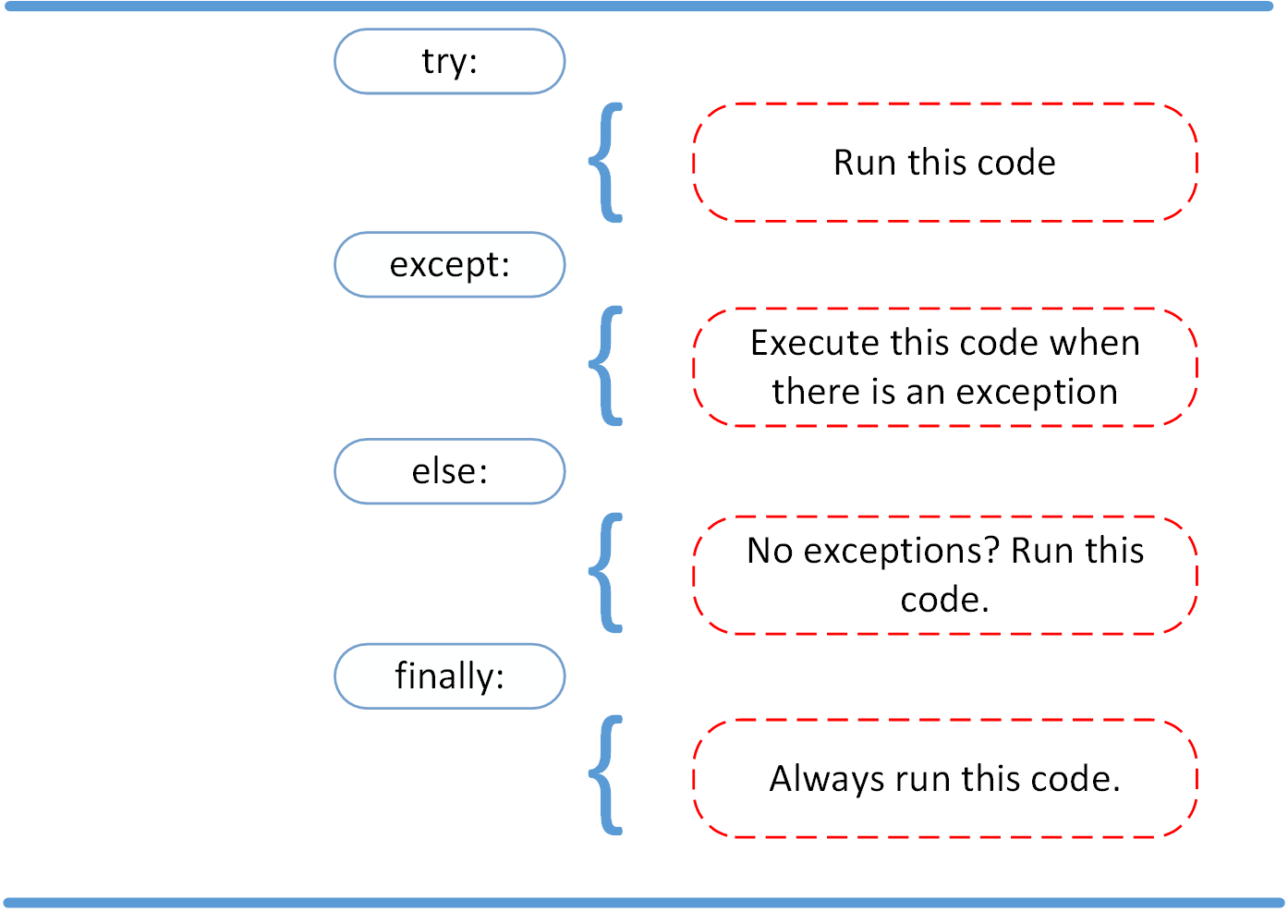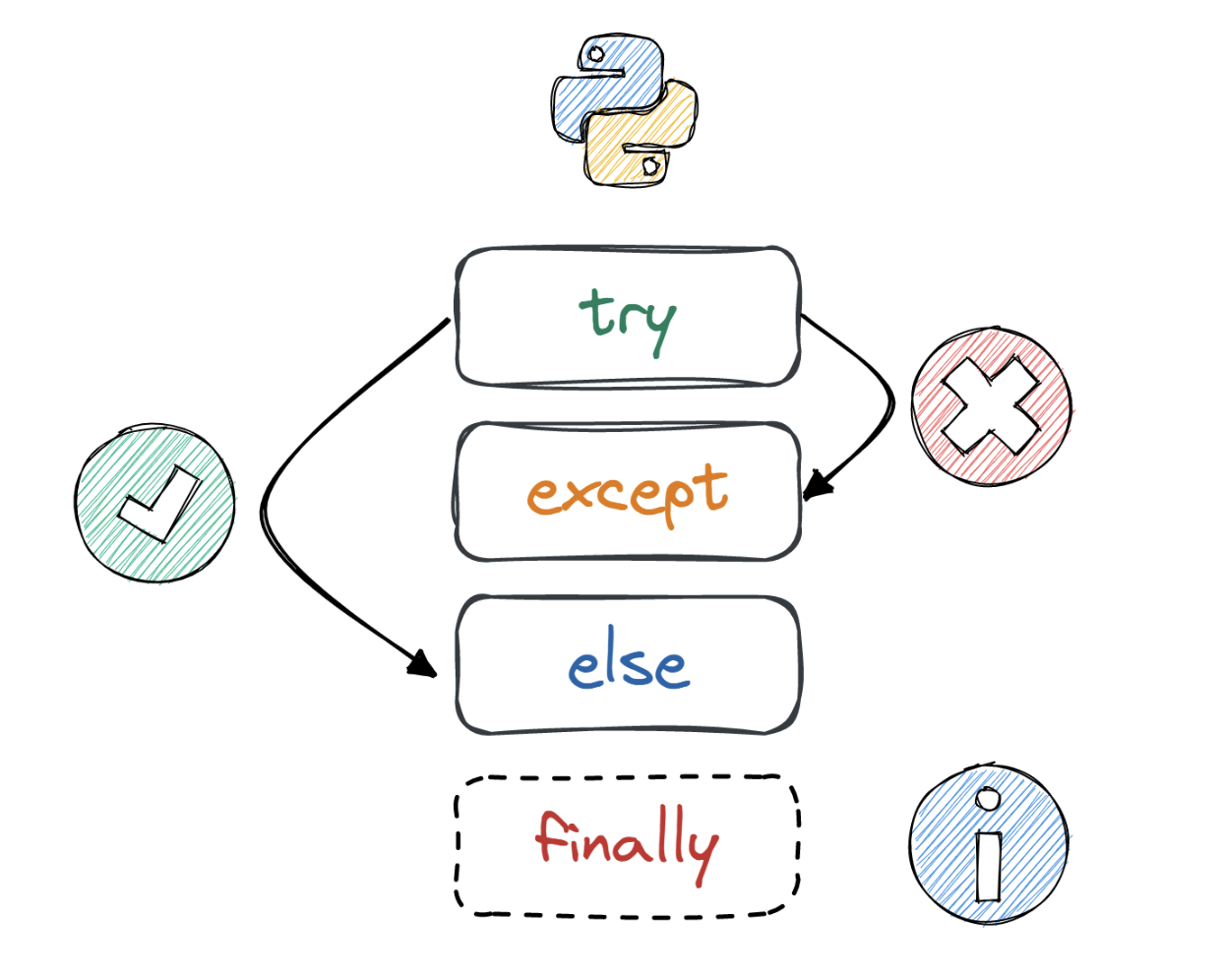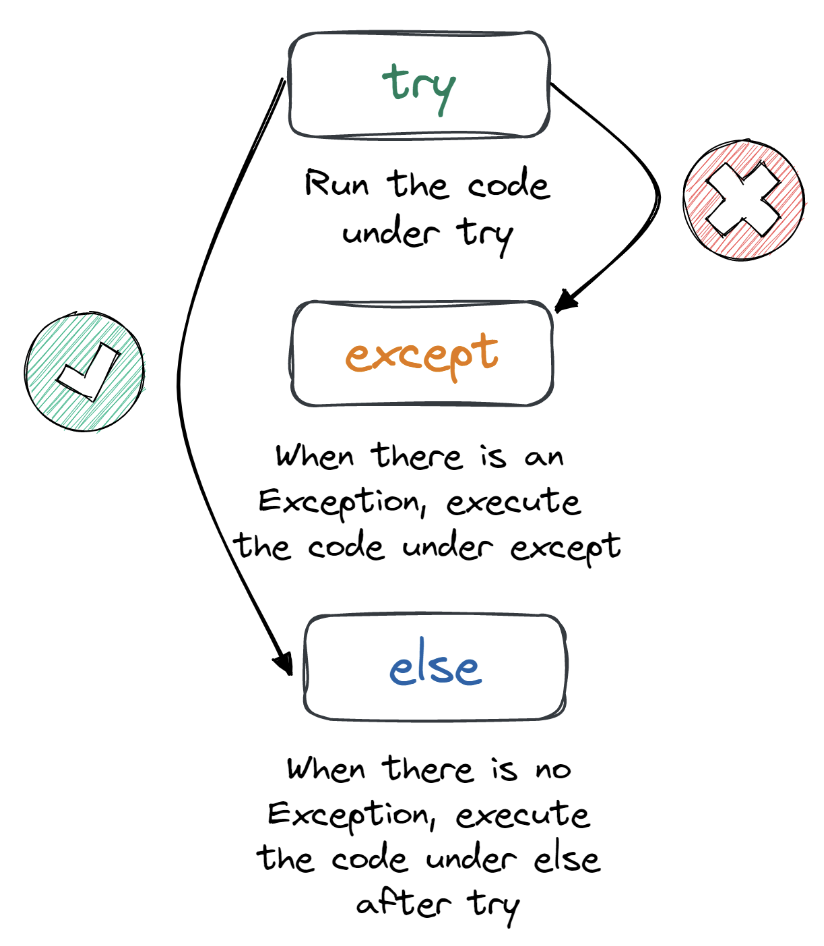Antwort What is the difference between raise and catch exception? Weitere Antworten – What is the difference between raise exception and try catch
The raise statement is often used in low-level code that can detect but not handle an error. The try-except blocks are in higher-level code that calls these low-level functions and knows how to handle the errors. This separation allows for modular code where each function specializes in a single task.An exception handler is a block of code that is executed if an exception occurs during the execution of some other block of code. In this sense, exceptions are a kind of control statement. Raising an exception transfers the flow-of-control to exception handling code.Raising an exception is a technique for interrupting the normal flow of execution in a program, signaling that some exceptional circumstance has arisen, and returning directly to an enclosing part of the program that was designated to react to that circumstance.
What is the difference between finally and catch : The catch statement defines a code block to handle any error. The finally statement defines a code block to run regardless of the result.
What is the difference between exception and catch
Throwing exceptions is a signal that something went wrong or was exceptional. By catching exceptions, you can specify how the programme should react to them and handle them by offering the proper methods for error handling, reporting, or recovery.
Why use try catch instead of if : try/catch is used to handle exceptions. So use try/catch to handle exceptions, not “normal” flow of control. You can use if/else inside of the catch block if you need to. Exceptions are better avoided when writing speed oriented code like device drivers or embedded firmwares.
Raising the right exceptions makes debugging easier: if you correctly determine where in your code you can potentially have errors, raising the exceptions will make sure you can efficiently trace the source of the problem and fix your code.
Raising an Exception in Python
Note that the final call to print() never executed, because Python raised the exception before it got to that line of code. With the raise keyword, you can raise any exception object in Python and stop your program when an unwanted condition occurs.
Can I use try without catch
Try can work without catch but you must have a finally block.In Java, you can catch multiple exceptions in a single catch block by specifying multiple exception types separated by a vertical bar ( | ), also known as the "or" operator. For example: Copy codetry { // code that might throw an exception.You should catch the exception when you are in the method that knows what to do. For example, forget about how it actually works for the moment, let's say you are writing a library for opening and reading files. Here, the programmer knows what to do, so they catch the exception and handle it.
In the Java language, you can use a try block without a catch block but you can't use the catch block without a try block.
When should I raise exceptions : In general, you should raise exceptions when you need to: Signal errors and exceptional situations: The most common use case of the raise statement is to signal that an error or exceptional situation has occurred. When an error or exceptional situation occurs in your code, you can raise an exception in response.
Why avoid exceptions : Exceptions are a rare event, so the normal program shouldn't pay for them. Also, exceptions from anything other than error conditions are quite confusing to the user of your class or function.
What does raise do
Introduction. The raise keyword is used to raise an exception. You can define what kind of error to raise, and the text to print to the user. except is a keyword (case-sensitive) in python, it is used to raise an Exception/Error with a customized message and stops the execution of the programs.
The try statement allows you to define a block of code to be tested for errors while it is being executed. The catch statement allows you to define a block of code to be executed, if an error occurs in the try block.The alternative to a try/catch is checking for the error before it can happen. Like If you're catching null-reference exceptions, you could instead add if(t!= null)'s. And that can be better since you can handle each specific instance, maybe even fixing it instead of quitting.
What are the 2 ways I can handle exception : How to Handle an Exception. Java provides two different options to handle an exception. You can either use the try-catch-finally approach to handle all kinds of exceptions. Or you can use the try-with-resource approach which allows an easier cleanup process for resources.







